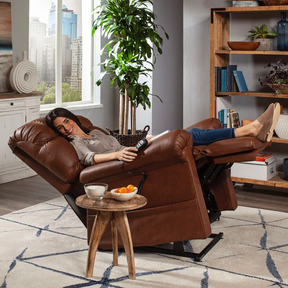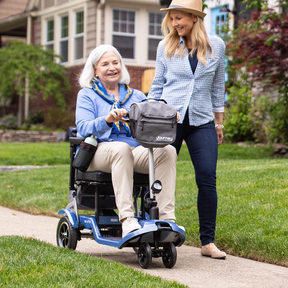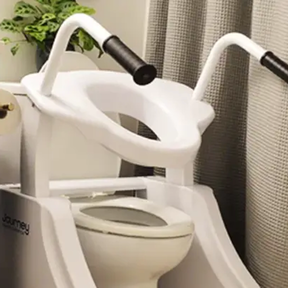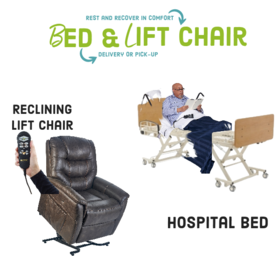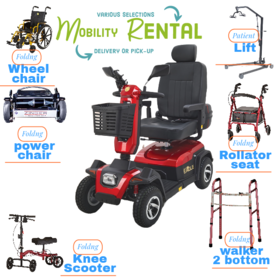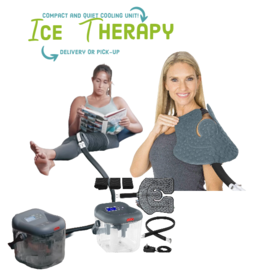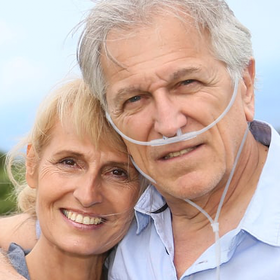Blog What's in common with the nasal pillow mask, nasal mask, or full-face mask?
Sat, 03/19/2022 - 19:52

What's in common with the nasal pillow mask, nasal mask, or full-face mask?
Finding a suitable mask is one of the most critical aspects of the entire CPAP regimen. Finding a comfortable mask that has good sealing and is easy to use may significantly improve your chances of success with CPAP therapy. The following is a short and sweet explanation of CPAP mask spare types.
What is a nasal mask?
CPAP nasal masks have a triangular shape and sit around the nose. This device is held by headgear (stretchy straps around the nose). Various sizes are available depending on the size and shape of the nose.
Who is a nasal mask best for?
A nose-breather. Mouth breathers can wear the mask with the chin strap (an elastic band that goes over their heads and under their chin to keep their mouths closed at night).
Who shouldn't use a nasal mask?
Those who breathe through their mouths. This mask can also be worn with a chin strap (a strap that goes over your head and under your chin to keep your mouth shut at night).
The mask won't stick to your skin because you have a lot of facial hair.
Things to consider about a nasal pillow mask:
- A mask that touches your face and is tightened around your head may irritate your nose bridge (see illustration above).
What is a nasal pillow's mask?
A nasal pillow is a cushion that seals the nose and is held in place by a flexible strap around the head's back. There are a few invasive features of this mask.
Who is a nasal pillow's mask best for?
- They are nose-breathers.
- People who are claustrophobic due to the lack of contact with their faces and the lack of obstructions.
- An individual who enjoys reading or watching TV before falling asleep.
- Someone with a lot of facial hair may have difficulty sealing the mask with other mask types.
- Sleepers who move a lot (may stay in place better while turning and tossing)
Who shouldn't use a nasal pillow's mask?
Your CPAP pressure may be extremely high, causing you to be very uncomfortable since a great deal of air is blowing through these relatively small openings.
People suffer from nasal congestion or allergies that make breathing difficult through their noses.
An easy way to live is with a mouthpiece (or chin strap as well)
Things to consider about a nasal pillow mask:
Nasal dryness and nosebleeds are possible symptoms.
What is a full-face mask?
It covers the entire mouth and nose of the wearer and sits on their face. Cpap & Bipap accessories masks are typically the kind people think of when they first hear the term. The current designs are much smaller than the original masks, but all face masks cover the same face area.
Who is a full-face mask best for?
- Those who breathe through their mouths.
- A person who has nasal congestion. Most CPAP users use a nasal mask throughout the year, with a full-face mask only used for colds or seasonal allergies.
- Someone who sets their pressure high. These masks make high pressures more bearable.
- This mask may be ideal for someone claustrophobic as it does not touch the inside of the face.
Researchers have found that bi-level or BiPAP users benefit most from this mask because they are more prone to mouth leaks (refer to the bottom of this post).
Things to consider about a full-face mask:
The larger surface area of the lens could cause higher leakage and dry eyes.
It is nearly impossible to read or watch TV in bed or wear glasses with this mask on.
Sleeping on your stomach is almost impossible with this mask.
Which type of mask costs more?
Depending on cash patients, different masks have different prices based on the type, manufacturer, and provider.
The insurance company recognizes only two types of masks for CPAP supplies. Cover covers have cushions that must be replaced more frequently than the mask itself to ensure optimal performance. One pillow will be included with the mask (or set), and replacement cushions must be ordered separately.
What mask should I choose?
It is a highly personalized decision to choose a mask. Various mask types are available, including nasal, nasal pillows, full face, and oral masks. Here are some tips to help you decide which mask is best for you. A full-face mask might be the best option if your mouth breathes or tend to leak air from your mouth. When sleeping, a nasal pillow might be right for you if you have a mustache and breathe primarily through your mouth. Masks designed for higher pressure are also available. The product descriptions indicate these masks.
How do I clean and care for my CPAP and supplies?
Removing facial oils from the cushion before using the mask is good. Use mild soap and warm water to wash the cover. Then, rinse all the components and let them dry outside. Alternatively, you can hand wash headgear with a mild detergent and let it air dry.
Pros and Cons
Sleep disorders, such as sleep apnea, are a significant health concern in Denver. The number of people with sleep apnea in the United States is around 22 million, with 80 percent of those cases being moderate to severe undiagnosed obstructive sleep apnea (OSA).
Society finally recognized sleep apnea as a dangerous and life-threatening condition. The problem needs to be recognized and treated; however, it still requires much work.
CPAP, or continuous positive airway pressure, is one of the most popular and standard treatments for sleep apnea.
Patients wear CPAP & BiPAP accessories over their noses or noses and mouths at night. A hose connects the masks to a machine. Pumping air pressure into the patient's airway allows them to sleep comfortably.
Final thoughts
Even though most patients use CPAP for five to six hours a night, many use it for less than four hours. Many people in Denver use CPAP masks and seek out the best quality. Sky Medical supplies can deliver the best masks according to your needs. Contact Us Now to get more details.
Tags
- contest
- event
- supplies
- design
- brand
- video
- Compression
- upright walker
- four wheel walker
- rollator
- wheelchair
- Ostomy
- elegantly
- elegantly
- accessibility
- Mobility
- knee walker rental
- knee scooter sales
- knee scooter
- post operative shoe
- anti-embolic stockings
- pain management
- cryotherapy therapy
- hot cold compress
- compression stockings
- lift chair
- wound Care
- air purifier
- fall prevention
- cushion
- oxygen therapy
- cpap, bipap
- Hospital Bed
- Life Aide
- EMS
- recovery
- splint
- knee brace
- Bathroom
- patient lift
- medical supply
- Wound dressings
- Lightweight Wheelchair
- hospital beds for sale
- sky medical supplies rentals
- compression socks
- Tegaderm Dressing
- Adult Diapers
- Rollator Walker
- Bed Wedge Pillow
- Hospital beds
- Patient Lifts and Slings
- Portable Oxygen Concentrator
- Patient Lift Slings
- knee scooter rental
- folding mobility scooter
- mobility scooter
- medical shoes
- raised toilet seat
- hospital beds for rent
- lift chair recliner
- chair lift
- electric wheelchair
- Power Lift Recliners for Elderly
- Senior Walkers
- Bedside Commodes
- whill wheelchair
- compression hose
- Whill Electric Wheelchairs
- Bariatric Wheelchair
- Recliner Chairs with Lift
- Colostomy Bag
- Crutches
- Medical Wedge Pillow
- skin barrier tape
- Post Surgery Ice Machine
- Bedside Commode
- chair lift recliners
- cane holder scooter
- lift chair prices
- drop arm commode
- rollator walker with ergonomic seats
- Hospital Bed Rental
- Wheelchair Tray
- Golden Technologies Lift Chair
- Nova GetGo Junior Rollator
- power lift recliners
- Knee Scooters and Crutches:
- stand up walker for seniors
- stand up walker as seen on TV
- Women's Walking Canes
- Knee Immobilizers
- Bed Wedge Pillow
- Medical Supply Stores
- Sit to Stand Lifts
- Grab Bars
- Compression Gloves
- incontinence bed pads
- Lift Reclining Chair
- Knee Walker Scooters
- Hernia Belt Near You
- Mobility Scooter Stores Near Me
- Folding Knee Walker
- Oxygen Concentrator Store
- Inogen Battery
- Electric Bed Frames
Related Posts
Get weekly articles in your inbox on the latest medical supply news, exclusive deals, and helpful health tips.
Fri, 09/15/2023 - 22:47
A Comprehensive Guide to Skin Protection with Skin Barrier Tape and Hollister Barrier Extenders
Welcome to our comprehensive guide to skin protection using skin barrier tape and Hollister barrier extenders.
